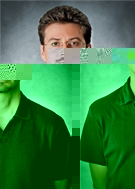檢測到您當前使用浏覽器版本過于老舊,會導緻無法正常浏覽網站;請您使用電腦裡的其他浏覽器如:360、QQ、搜狗浏覽器的極速模式浏覽,或者使用谷歌、火狐等浏覽器。
 下載Firefox
下載Firefox
檢測到您當前使用浏覽器版本過于老舊,會導緻無法正常浏覽網站;請您使用電腦裡的其他浏覽器如:360、QQ、搜狗浏覽器的極速模式浏覽,或者使用谷歌、火狐等浏覽器。
 下載Firefox
下載Firefox
北京大學定量生物學中心
學術報告
題 目: 'Next generation' single-molecule studies of DNA processing molecular machines
Dept. of Physics, University of Illinois, Urbana-Champaign
時 間: 10月24日(周一)09:00-10:00
Meeting ID: 910 9636 7823
Password:cqbcqb
主持人: 齊志 研究員
摘 要:
Single-molecule techniques have revolutionized our understanding of biological molecular machines, the protein and protein complexes that bring cells to life. In this talk, I will discuss our work developing new single-molecule tools and integrating them with atomic-scale simulations that provide unprecedented access into the structure-function relationships and mechanisms of biological machines. I will discuss various applications of these approaches, in particular our measurements of helicases, which use the energy of ATP hydrolysis to separate the strands of nucleic acid duplexes and play key roles in the cellular machinery that maintains and repairs the genome. Our work shows how prototypical helicases process DNA and possess molecular switches that regulate their activity. Interactions with protein partners are likely to provide control over these switches and define the roles the helicases play in the cell. Our findings provide new insights on the mechanisms by which these molecular machines function and are regulated in the cell.
Professor Yann Chemla received his PhD. in physics from the University of California, Berkeley in 2001. Trained as a condensed matter experimentalist, he developed an interest in biophysics through his study of magnetotactic bacteria and his development of a magnetic nanoparticle-based biosensor. Prof. Chemla completed his transition to biophysics as a postdoctoral fellow in Prof. Carlos Bustamante’s laboratory at Berkeley. There, he trained in single-molecule methods, using optical tweezers to study DNA packaging in viruses. He joined the Department of Physics at the University of Illinois, Urbana-Champaign in 2007. He is the recipient of an NSF CAREER award and a Sloan Foundation Research Fellowship, and was named Fellow of the American Physical Society. Since 2015, he has served as co-Director of the NSF Physics Frontiers Center (PFC) the “Center for the Physics of Living Cells” (CPLC).
